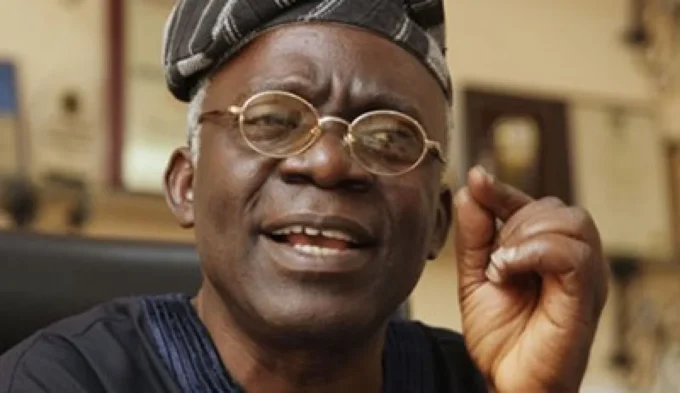In the political arena of Kogi State, the narrative surrounding former Governor Yahaya Bello’s impact on the ongoing youth protests against poor governance has sparked heated debate. Usman Okai Austin, the 2023 Peoples Democratic Party (PDP) candidate for the House of Representatives election for Dekina/Bassa, has publicly dismissed assertions made by political commentator Sulaimon Adejoh. Adejoh’s claims implied that Bello played a crucial role in maintaining peace within the state in light of the recent nationwide protests against governance failures.
Austin, a prominent socio-political figure, is challenging the notion that Yahaya Bello deserves credit for any semblance of peace currently observed in Kogi State. According to him, the former governor’s policies and leadership style have instead contributed to an environment of discontent and hunger among the state’s populace. This assertion comes at a time when many citizens are actively expressing their frustrations about the government’s performance and demanding improved governance.
In a recent statement, Adejoh suggested that Bello has orchestrated a controlled atmosphere to prevent protests from gaining traction in Kogi State. He argued that the former governor, who remains a staunch supporter of President Bola Tinubu, views the protests as a threat that must be actively stifled. “Yahaya Bello has consistently pulled the strings behind the scenes since his tenure began in 2016,” Adejoh wrote in an opinion piece. He credited Bello with restoring security to Kogi, alleging that he enlisted the support of current Governor Alhaji Usman Ododo and local youth to ensure a quiet response to calls for protest.
Also read: Trump Faces Melania Jabs in Marriage Joke After Recent Rally Incident
However, in a counter-statement posted on his social media platform, Okai expressed skepticism regarding the premise of Adejoh’s article. He highlighted the existence of significant unrest within the state, stemming from widespread economic hardship exacerbated by Bello’s governance. Okai referenced the case of Muri Ajaka, a local political figure who, despite feeling wronged in previous elections, urged his followers to maintain peace amid rising tensions. Additionally, he pointed out that officials like Senator Echocho and Karimi have also encouraged calm within their districts, emphasizing unity over discord.
Okai’s critique of Bello’s leadership is sharp and pointed. “Ironically, Yahaya Bello, under whom Kogi has suffered profoundly, claims to be maintaining peace.” He describes Bello’s governance as a period marked by rising hunger levels and economic despair, asserting that these conditions have left Kogi one of Nigeria’s least fortunate states in terms of availability and access to food. “Being under the APC-led federal government, the people’s plight has only worsened, with many feeling abandoned and overlooked,” he lamented.
Adding fuel to the discourse, Okai asserts that the narrative around Bello maintaining state peace is misleading. He suggests that the former governor is internally troubled by ongoing investigations by the Economic and Financial Crimes Commission (EFCC), hinting that his silence during these protests could be self-serving. “Bello secretly hopes for significant protests in Kogi to shift attention away from his own troubles,” Okai alleges, condemning the suggestion that the former governor should take credit for stability that he believes is merely coincidental.
As Kogi State continues to navigate the complexities of governance and youth activism, Okai’s remarks reflect a growing sentiment among residents. Many are grappling with harsh economic realities and political disenchantment as they seek accountability from those in power. The backlash against government actions—and inactions—has prompted discussions on how to effectively advocate for change, signifying a potential shift in the political landscape as the country gears up for potential reforms.
This political narrative serves as a reminder of the larger picture unfolding across Nigeria, where citizens are increasingly restless and demanding better representation. The ongoing protests, primarily targeted at issues of governance and corruption, underscore a broader dissatisfaction with present administration policies and a yearning for leadership that prioritizes the needs of the people.
Also read: “Controversial Aspects of Jill Biden’s Ex-Husband, Bill Stevenson”
As the discourse evolves, figures like Usman Okai play a pivotal role in shaping public opinion and rallying support for a more equitable governance approach. His critique of Yahaya Bello’s alleged influence on peace in Kogi State resonates with many who bear the brunt of policies perceived as harmful rather than beneficial.
In conclusion, political dynamics in Kogi state continue to unfold, with ongoing discussions about leadership accountability and societal well-being compelling residents to demand action. As young Nigerians take to the streets, the call for change echoes louder, signaling a shift that could redefine governance in the region. Whether the figures currently in power can adjust to meet these new demands remains to be seen, but the pressure for reform is palpable.














Leave a comment